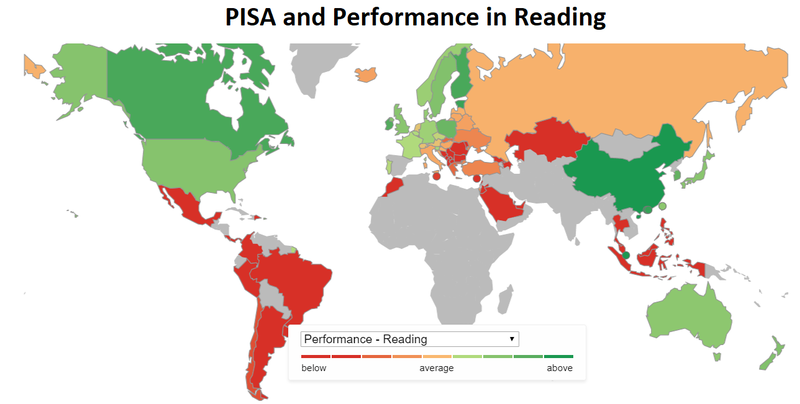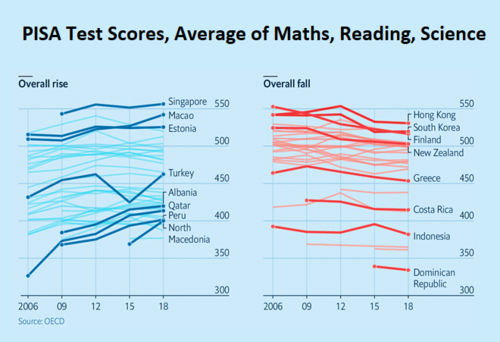PISA Results Can Mislead Policymakers: Economist
The OECD initiated the Programme for International Student Assessment, or PISA, about two decades ago, and students in select schools of member and some non-member states take the test every three years. PISA analyzes reading, math, and science skills of 15- and 16-year-old students. OECD released the newest results and although the expenditure per pupil in the OECD has increased by 15 percent in the past decade, performance has not kept pace because schools actually have less impact on results than commonly assumed. Culture and other social factors including small classroom sizes along with adult literacy, immigration and poverty rates may matter more. Lack of awareness about such relationships may mislead policymakers to over-rely on PISA results and implement ineffective policies. For example, Finland scored high in early years of the PISA, encouraging many other countries to mirror its education system. However, the Finnish system does not necessarily have the same effect in other countries and Finland itself experienced declining performance due to changing social factors. Nations that consider social factors in their education policies, such as Estonia, have achieved progress over the PISA performances.– YaleGlobal
PISA Results Can Mislead Policymakers: Economist
Good PISA scores are hard to reproduce simply by imitating other education systems – policymakers need to consider both policy and other social factors
Monday, December 9, 2019
Read the article from the Economist about recent PISA scores, the global education assessment tests from the OECD.

(Source: OECD)

Variance: Scores depend on more than school systems (Source: OECD)
The Economist
Copyright © The Economist Newspaper Limited 2019. All rights reserved.